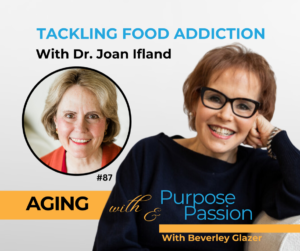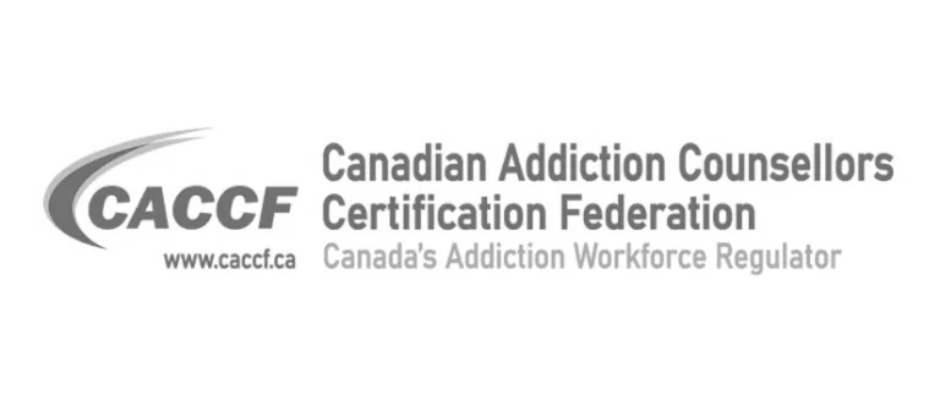
Tackling Food Addiction with Dr. Joan Ifland
In this episode Beverley Glazer, welcomes Dr. Joan Ifland, a renowned author and pioneer in the field of addictive nutrition, to discuss the profound influence of processed foods on both our physical and mental health. Dr. Ifland, who has dedicated her life to studying processed food addiction, revealed shocking truths about its impact on personality traits and health issues.
Key Takeaways:
Processed foods can lead to rage, irritability, coldness, and critical nature due to their impact on brain function.
The tobacco industry has significantly influenced the processed food industry by incorporating addictive substances and deceptive advertising.
Overcoming processed food addiction requires substantial support and community engagement, beyond mere education.
.
The Influence of Processed Foods on Mental Health
One of the most striking revelations from the conversation was the connection between processed foods and negative personality traits. Dr. Ifland shared her personal experience of growing up in a traumatic household, where processed foods were a staple. This led to an environment characterized by rage, irritability, and a general coldness.
According to her, processed foods can disrupt stable blood glucose levels and increase adrenaline, contributing to anxiety and anger. They also diminish the brain’s ability to deliver pleasure, resulting in increased depression and anxiety.
“Processed foods can create a personality profile marked by rage, irritability, and critical nature,” she explained. “Today, I know that processed foods were a significant factor in my family’s traumatic environment.”
By eliminating sugars and flours from her diet, Dr. Ifland experienced a significant improvement in her mental state. She noted that within weeks of making these changes, her feelings of rage subsided, and she became a more positive person.
The Tobacco Industry’s Role in Processed Food Addiction
A pivotal moment in the podcast was when Dr.Ifland exposed the link between the tobacco industry’s business model and the processed food industry. In the mid-1980s, major tobacco
companies purchased significant food brands and introduced their addiction model to the food industry. This model focuses on creating addictive products, extensive and deceptive advertising, increased availability, targeting young ages, and keeping prices affordable.
“The addiction business model was honed in cigarettes and then brought over to processed foods,” She said. “The tobacco industry knew exactly how to create an addictive product and market it deceptively.”
This approach led to skyrocketing addiction rates as processed foods became ubiquitous and affordable. The introduction of high fructose corn syrup, an addictive component, further compounded the issue.
“High fructose corn syrup acts like corn alcohol in the body, increasing addiction and converting to fat more readily than sugar,” Dr. Ifland noted.
The implications are far-reaching, with 93% of Americans over the age of 20 now suffering from diet-related diseases due to processed foods.
The Path to Recovery: Community and Support
Perhaps the most hopeful aspect of the podcast was Ifland’s exploration of recovery. She emphasized that overcoming processed food addiction is not just about willpower or making better choices; it requires robust support and community engagement due to the severe nature of the addiction.
Dr. Ifland’s creation of the Addiction Reset Community (ARC) represents a breakthrough in treating processed food addiction. This online community leverages the concept of mirror neurons, which influence behavior through social modeling.
“Your environment and the people around you determine your behavior,” Ifland explained. “In our online community, mirror neurons help individuals adopt healthy behaviors by seeing others do the same.”
Within this supportive environment, individuals receive continuous, around-the-clock assistance to navigate their cravings and maintain a clean diet. With evidence from her programs showing promising results.
Transforming Lives by Addressing Processed Food Addiction
The conversation between Beverly Glaser and Dr. Joan Ifland sheds light on an often-overlooked culprit behind weight gain and stress: processed food addiction. Through personal anecdotes, rigorous research, and groundbreaking solutions, they emphasized the profound impact of processed foods on mental and physical health.
Processed foods contribute significantly to negative personality traits, health issues, and overall well-being. The tobacco industry’s business model, which was adapted to the processed food industry, has resulted in widespread addiction that affects millions of people. However, hope is
not lost. Dr. Ifland’s Addiction Reset Community (ARC) offers a powerful solution through continuous support and community engagement.
By addressing processed food addiction head-on, individuals can reclaim their health, transform their relationships, and pave the way for a fulfilling life, free from the grips of this hidden adversary.
Connect with Dr. Joan Ifland
https://www.facebook.com/foodaddictionreset/ https://www.instagram.com/foodaddictionreset/ https://www.linkedin.com/company/food-addiction-reset https://www.youtube.com/@FoodAddictionReset
https://www.processedfoodaddiction.com
Connect with Bev:
Facebook Group https://www.facebook.com/groups/womenover50rock
https://www.linkedin.com/in/beverleyglazer/
Get the Fulfillment Guide: https://reinventimpossible1.lpages.co/life-perspective-inventory
Need advice? Schedule a time to talk: https://calendly.com/reinventimpossible/15min













